Which Yeti coolers are best for car camping, beach days, hunting and road trips? We asked the iconic brand for their top picks
Yeti coolers don’t come cheap, so it’s important you buy the right one for your adventures
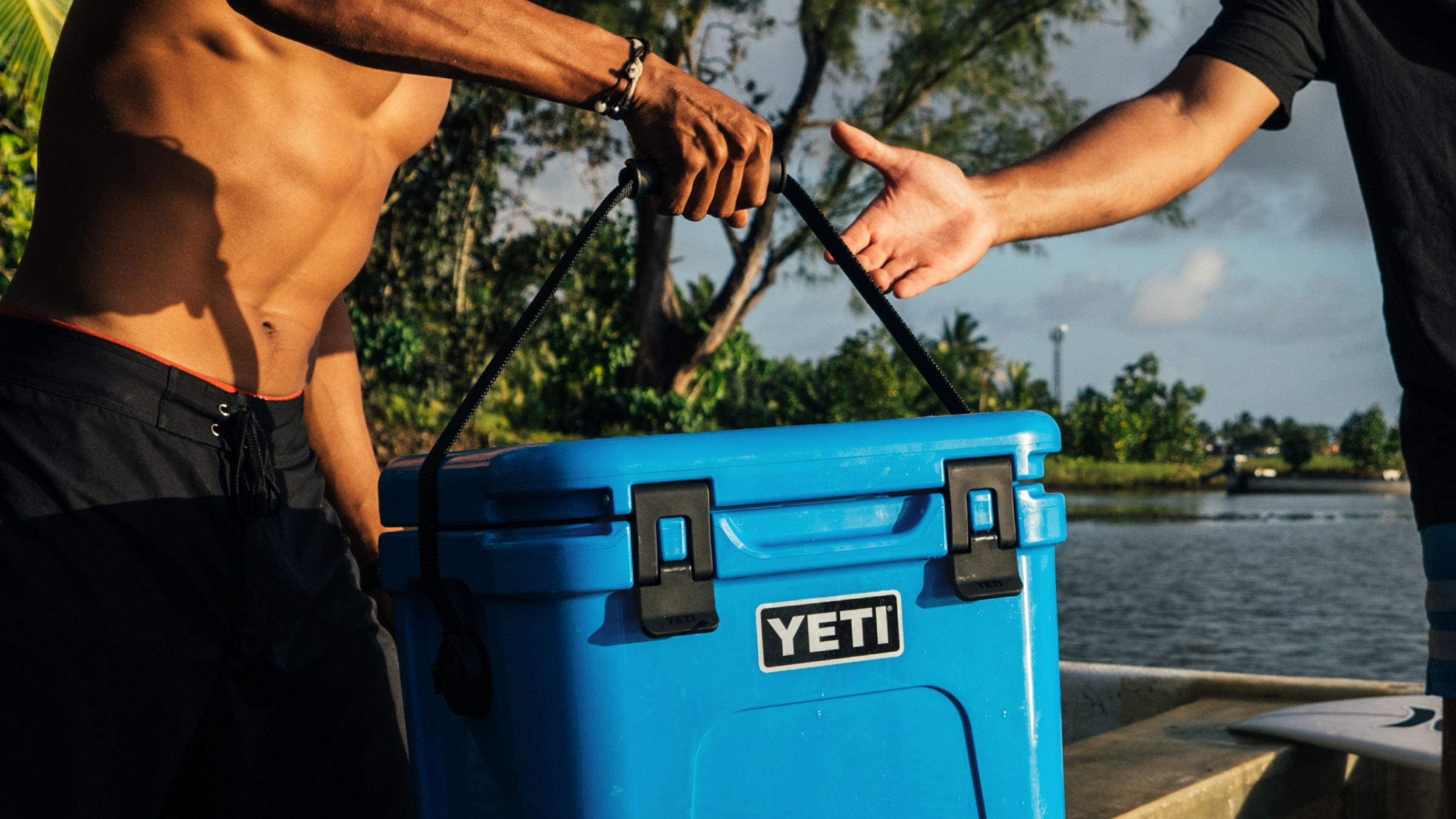
Despite the name, camping coolers didn’t actually used to be cool – until the Yeti brand came along and turned the industry on its head with its sought-after cool boxes that are now the envy of every camper.
In the 19 years since Yeti was founded in 2006, it has easily surpassed its competitors in the field, and while we’re sure that branding played a big role in its success, we also can’t deny that the Yeti coolers we’ve tested are seriously tough, verging on bulletproof.
It’s no surprise that Yeti coolers are exceptionally high performing – the brand was born out of a need for serious protection against the blazing hot sun. Brothers Roy and Ryan Seiders are keen fishermen from Texas who needed something to protect their catch from the scorching heat.
Much like Tim Leatherman designed his own multi-tool to deal with gear issues in the field and John Burroughs engineered the first Therm-a-Rest camping mat to get a better night’s sleep in the mountains, the Seiders brothers took things into their own hands and came up with the now-legendary Tundra cooler.
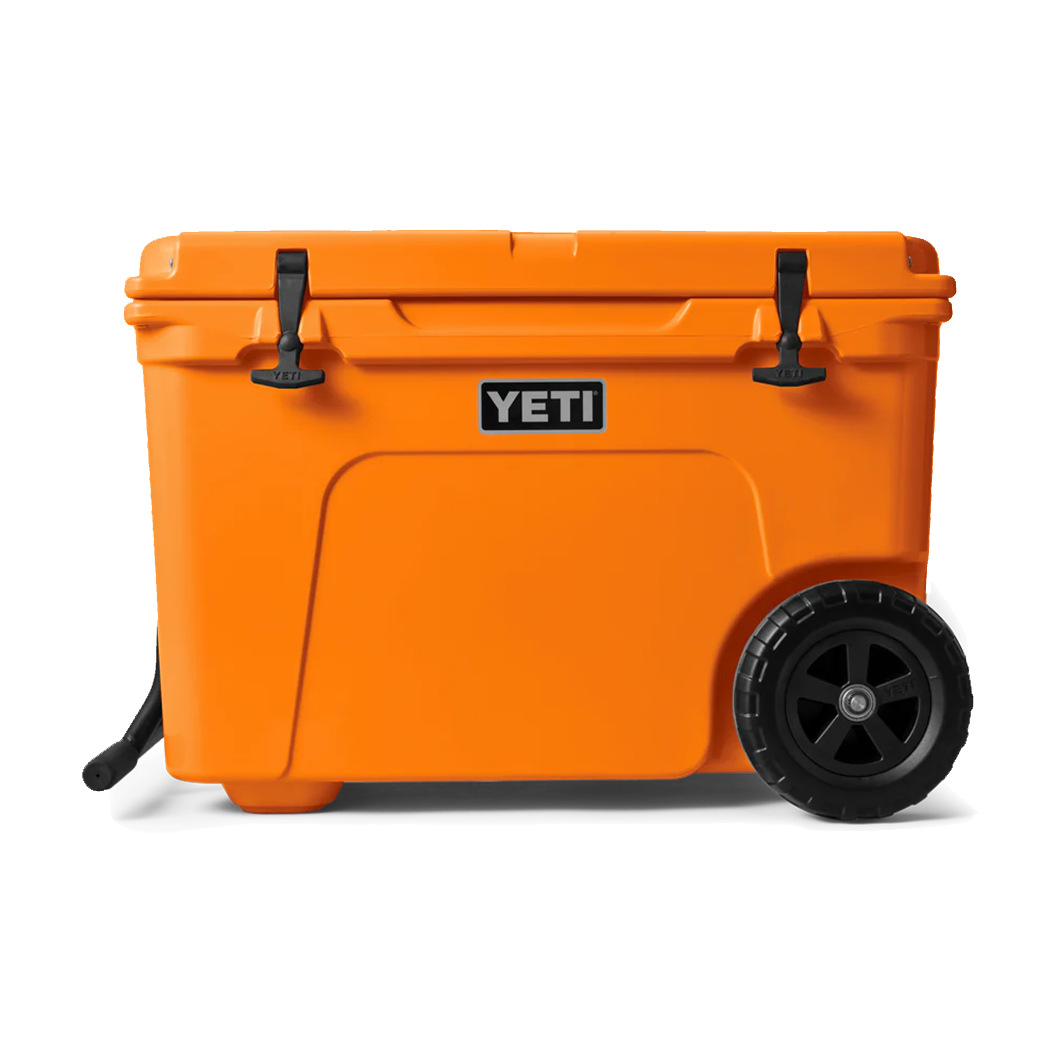
The Tundra used what's called Rotomolded construction – a method that creates a seamless piece of plastic, eliminating weak points where heat could penetrate. In addition to three inches of insulation, the result was a seriously rugged and high-performing cooler.
Less than two decades later, Yeti now makes coolers of all sizes, from soft backpack-style to behemoth wheeled ice chambers. If your old cooler has finally seen its last camping or fishing trip, there's a good chance you’re thinking about upgrading to a Yeti, so we asked the brand which models are best for some of our favorite activities. Here’s what they recommended:
Car camping: Yeti Tundra 45
When you’re loading up the car for a night or two at camp and you want to keep all your food plus a few brews ice cold, Yeti recommends the cooler that started the whole story. The Tundra 45 is a solid all-purpose size that holds overnight camp provisions for four people if you’re camping with your family.
It comes with a removable dry goods basket so you can keep your snacks separate from melting ice and has a bearproof design to keep you and your food protected if you’re camping in bear country. Though it fits a whopping 54 cans (without ice) or 37lb of ice, you can still grab it by its handles when it’s full and easily transport it from trunk to camp kitchen.
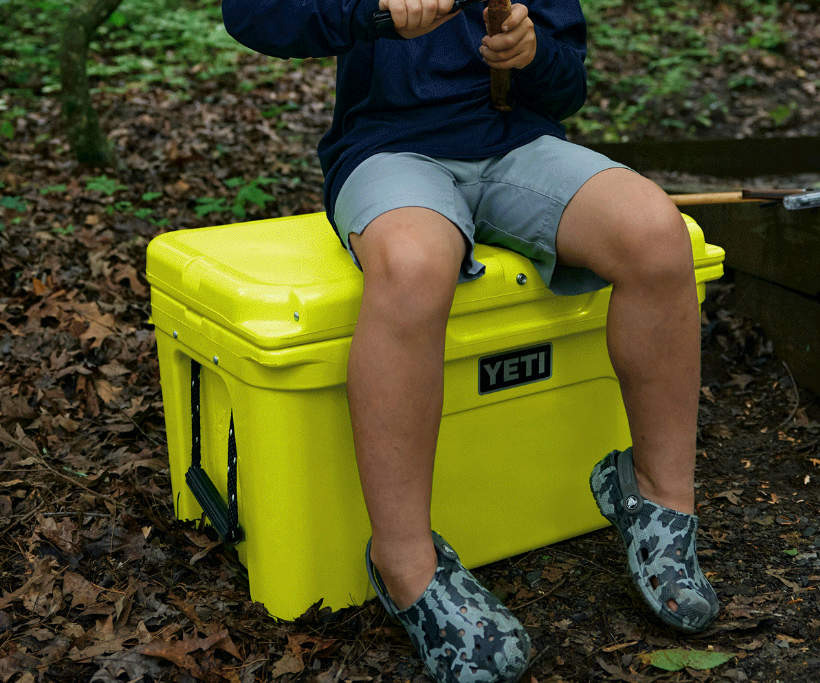
Festivals: Yeti Roadie 32
If you’re heading to a music festival or tailgating at a concert, let’s be honest, you’re probably looking at more drinks than food, and you’ll be glad for a wheeled cooler that lets you easily trundle along over rough ground without messing up your carefully curated distressed denim and Uggs outfit.
The Yeti Roadie 32 is just what the doctor ordered, letting you roll up to 50 cans into the party zone without so much as breaking a sweat. This cooler has the same cold-holding power and durability as the Tundra for sitting out in the baking sun, but with the added portability of a telescope handle and the brand's NeverFlat wheels.
You can even pay a little extra for the Roadie Wheeled Cooler Cup Caddy, which attaches to the cooler and holds two beverages. This one isn’t bearproof, but if you want to safeguard your goods from other festivalgoers, it is compatible with the Yeti Security Cable Lock.
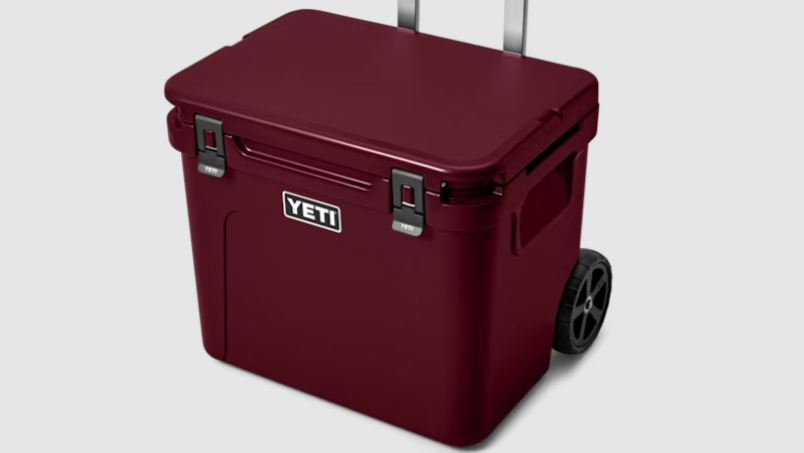
Beach days: Yeti Hopper Flip 12
Heading to the beach for a few hours of wild swimming or surfing and just want to bring lunch and a few cold ones? You'll be glad to know that not all Yeti coolers are mammoth-sized.
The Yeti Hopper Flip 12 is a soft-sided cooler made of seriously tough closed-cell rubber foam. It’s lightweight enough that you can easily tote it over one shoulder using the carry strap, so you don’t need to worry about getting sand in the wheels or hinges, but it still holds up 24 cans and you can easily brush it clean.
If you’re hauling refreshments for two, or the whole family, check out the larger Hopper Flip 18.
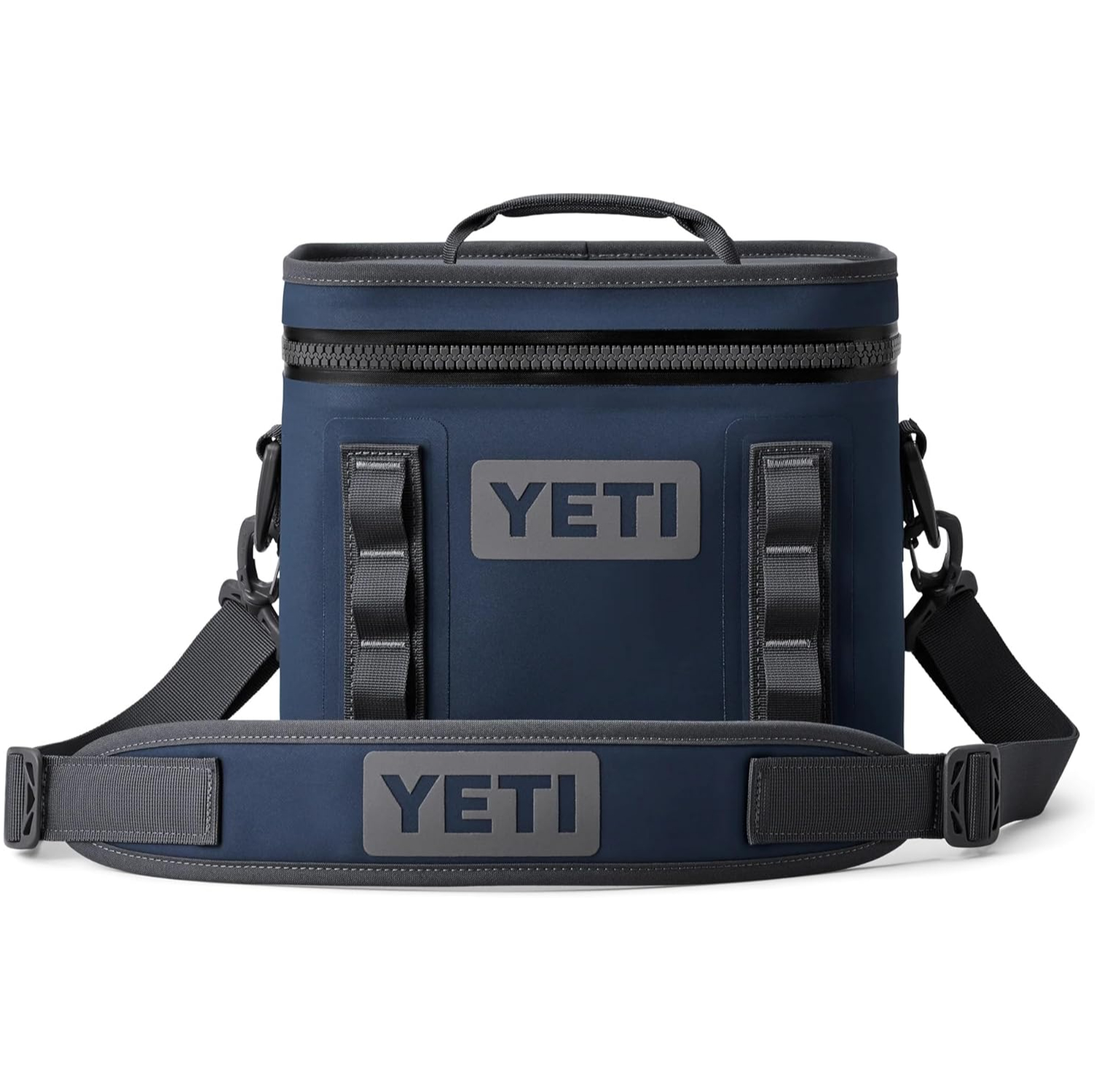
Short day hikes: Yeti Hopper M12
Yeti is known for its beefy, robust coolers so you might be surprised to learn that there’s a model that’s suitable for short day hikes. We’re obviously not talking about mountain summits here, but if you’re taking a quick walk to a scenic spot and want to bring a more extravagant lunch than a simple sandwich, the Yeti Hopper M12 boasts a unique backpack design that delivers extreme portability.
You can load up this cooler with a bottle of bubbly and your favorite snacks, seal it using the strip of ultra-strong magnets, and throw this cooler on your back. The soft Dryhide Shell is built to withstand punctures on the trail, and there’s a kangaroo pocket so you can pack essentials like your phone and keys, a first aid kit and sunscreen.
If you’re feeling strong, it also comes in a larger M20 design that fits up to 36 cans.
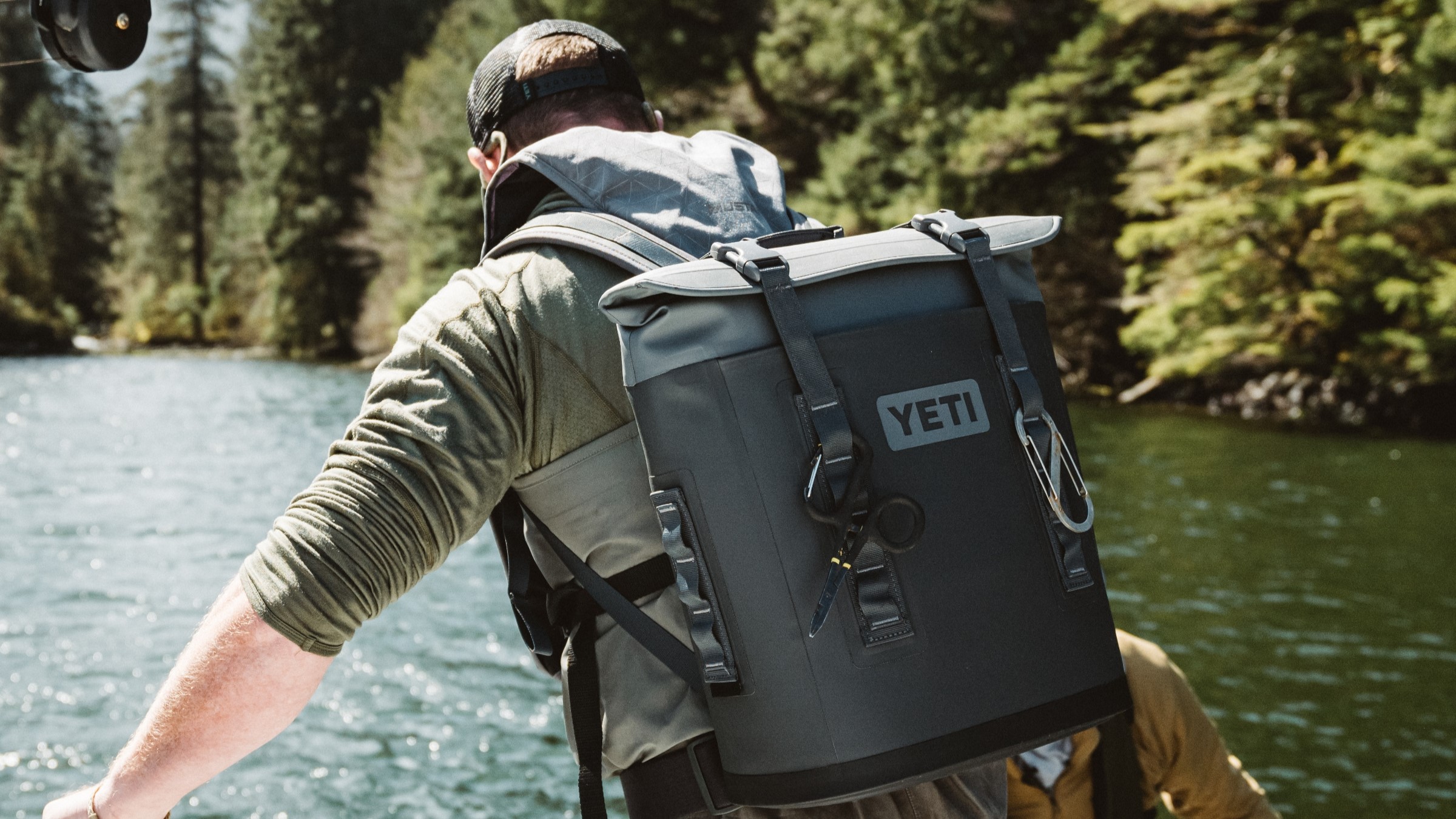
Road trips: Yeti Roadie 15
Taking to the open road? You can save money on pit stops and bring healthier food options along with a Yeti cooler that doesn’t take up your entire trunk.
The Roadie 15 easily fits in the wheel well or behind the driver’s seat of a small car, and even though it has a decent capacity at up to 20 cans, it’s easy to take to and from the car thanks to the super comfortable carrying strap.
This compact cooler has a drain plug for easy drainage by the side of the road, and we gave it super marks in our field review. If you need a bigger capacity for a longer road trip, go for a Roadie 24.
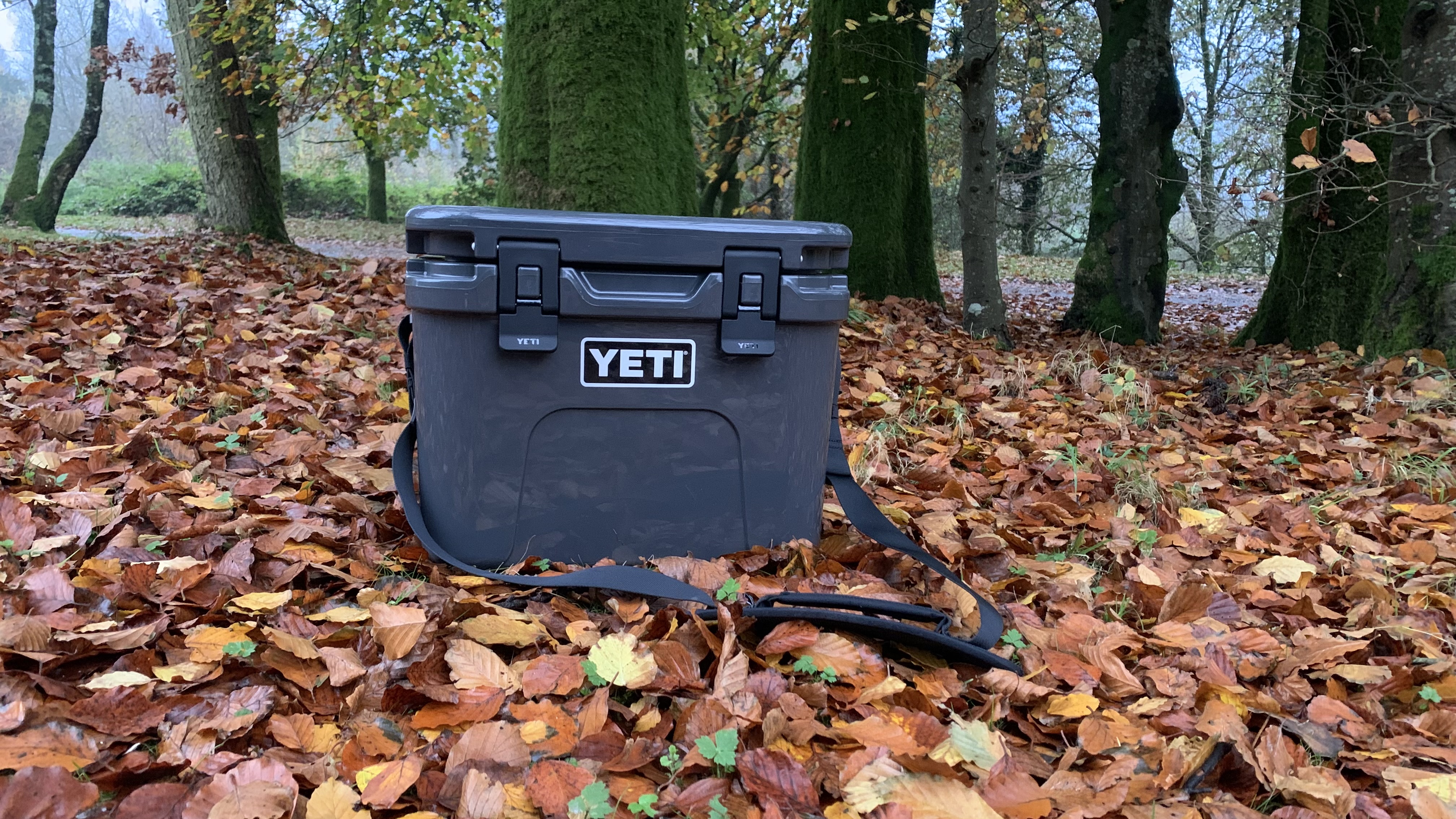
Water sports: Yeti Tundra 35
Whether you want something to keep your daily catch cold or you need to bring along enough food and drinks to keep the crew happy on the water, you need a rugged cooler that can handle being hauled in and out of a boat. Enter the Tundra 35.
Like the 45, this cooler is built to withstand practically everything you throw at it, and it’s a bearproof design if you’re fishing out west. Non-slip feet prevent it from sliding around in the boat if you hit some bumps or want to pick up the speed and as an added bonus, this cooler fits in an inner tube if you want to go floating. Most importantly, it features the brand’s legendary insulation to keep ice cold for days.
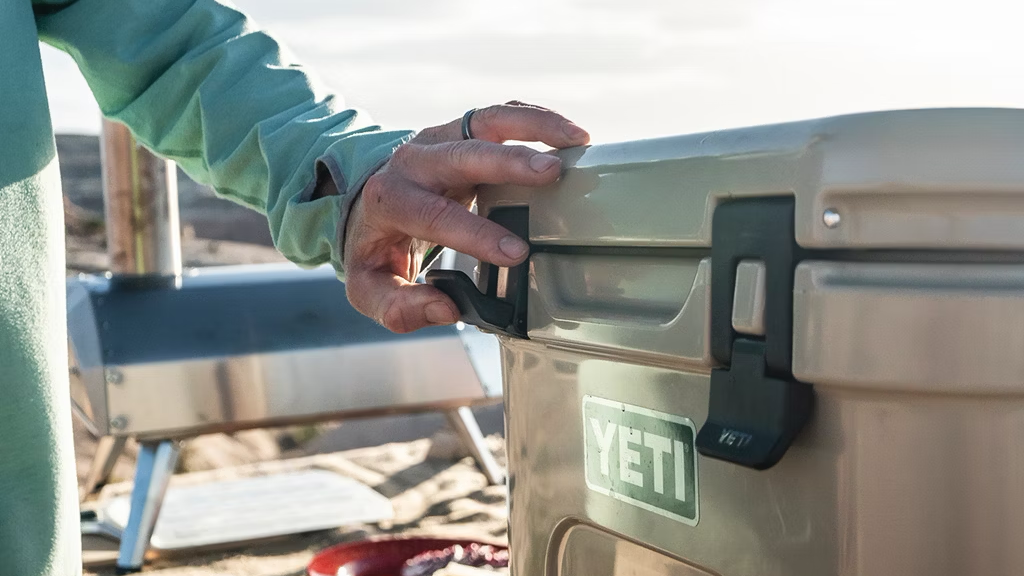
Hunting: Yeti Tundra 125
If outdoor adventure for you looks like setting up camp for the week during deer or elk season, you’ll want a lot of room inside your cooler. Not only will you need to cart in multiple days' worth of food and drinks, but if you get lucky, you’ll benefit from being able to keep a carcass fresh till you get it home.
The beefy Tundra 125 is built for exactly this kind of pursuit, as well as deep-sea fishing and even cross-country road trips. This massive cooler fits nearly 200 cans and is packed with PermaFrost insulation to keep your catch or kill cold. It’s bearproof, of course, and so big you can use it as a card table in the evenings.
Julia Clarke is a staff writer for Advnture.com and the author of the book Restorative Yoga for Beginners. She loves to explore mountains on foot, bike, skis and belay and then recover on the the yoga mat. Julia graduated with a degree in journalism in 2004 and spent eight years working as a radio presenter in Kansas City, Vermont, Boston and New York City before discovering the joys of the Rocky Mountains. She then detoured west to Colorado and enjoyed 11 years teaching yoga in Vail before returning to her hometown of Glasgow, Scotland in 2020 to focus on family and writing.

